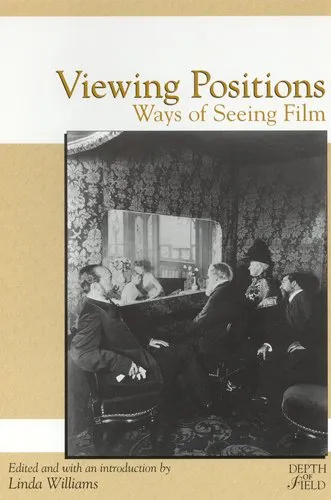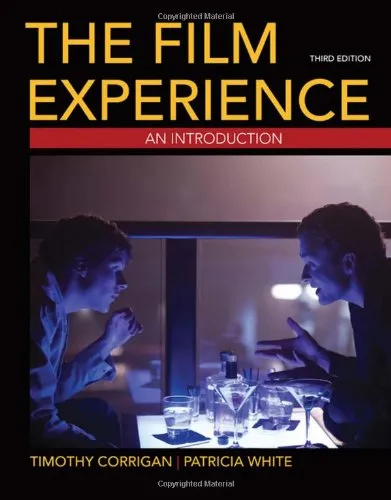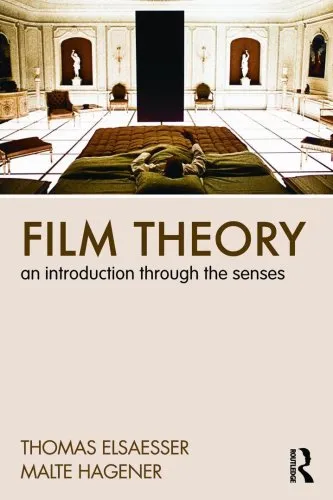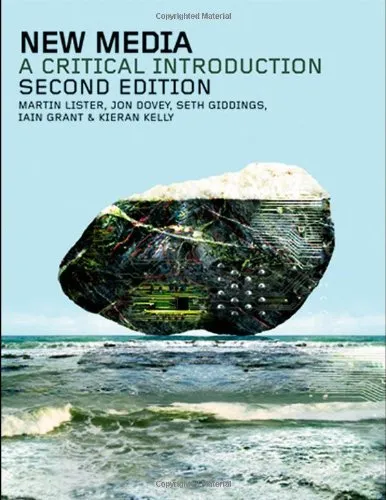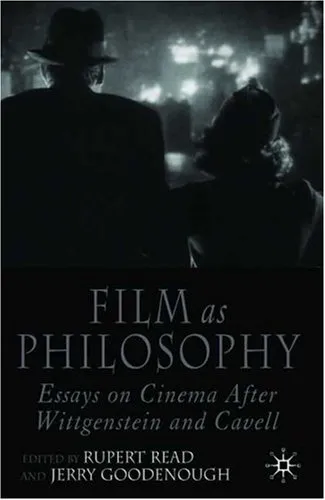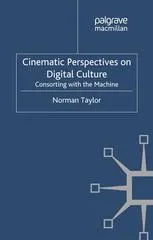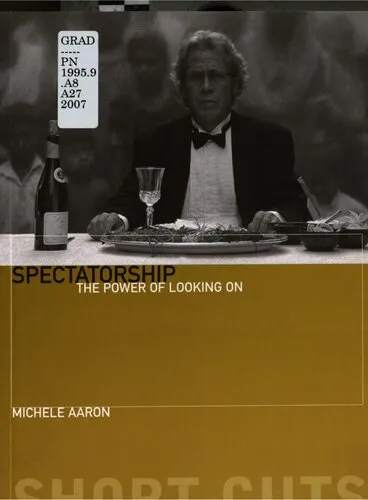Viewing Positions: Ways of Seeing Film (Rutgers Depth of Field)
4.7
Reviews from our users

You Can Ask your questions from this book's AI after Login
Each download or ask from book AI costs 2 points. To earn more free points, please visit the Points Guide Page and complete some valuable actions.Related Refrences:
Introduction to 'Viewing Positions: Ways of Seeing Film'
'Viewing Positions: Ways of Seeing Film', expertly edited by Linda Williams, is a profound collection that delves into the myriad ways audiences interpret and experience cinema. With a focus on the intersection of film theory, cultural studies, and psychoanalysis, this book offers a comprehensive exploration of the positions viewers occupy when engaging with films. Through a series of essays by influential scholars, this volume examines the complexities and diversities of cinematic perception, prompting readers to reflect on their own viewing habits and the broader socio-cultural implications of film.
Detailed Summary
The book is structured into thematic sections that dissect the concept of "viewing positions" in film analysis. It opens with a foundational discussion on the theories of spectatorship, introducing readers to the critical frameworks through which films can be analyzed. The contributors, each bringing their unique perspectives, explore how films serve as a medium for ideological, psychological, and cultural engagement.
A significant emphasis is placed on the role of the spectator’s identity—how gender, race, sexuality, and class can influence one's interpretation of a film. Linda Williams curates essays addressing these aspects, illustrating the multifaceted nature of film viewership. The book doesn’t shy away from challenging traditional narratives, encouraging a more inclusive and critical discourse about the power dynamics present in cinematic storytelling.
An intriguing component of this collection is its analysis of cinematic techniques and their impact on viewer perception. Discussions around camera angles, narrative structures, and sound design serve to illuminate the often subconscious effects these elements have on audiences. The book culminates in a reflection on how emerging technologies and digital media are reshaping the ways films are consumed and understood in contemporary society.
Key Takeaways
- The importance of acknowledging diverse viewer identities in film analysis.
- An understanding of the theoretical frameworks such as psychoanalysis and post-structuralism essential for dissecting viewer-film interaction.
- A recognition of the socio-political context that influences the production and reception of films.
- The transformative impact of technology on traditional viewing habits and film critique.
Famous Quotes from the Book
"The act of viewing is never passive; it is a dynamic process where viewers negotiate their identities with the narratives before them."
"Film, more than any other art form, possesses the uncanny ability to reflect and shape the social consciousness."
Why This Book Matters
'Viewing Positions: Ways of Seeing Film' stands out as a critical academic resource for both scholars and enthusiasts of film studies. It matters because it expands the boundaries of how we understand spectatorship beyond the simplistic consumption of visual media. It challenges readers to scrutinize their own preconceptions and to appreciate the intricate relationship between cinema and society.
The book is also vital for its contribution to ongoing discussions in cultural and media studies, shedding light on often underrepresented perspectives in mainstream narratives. By offering a platform for diverse analytical voices, this collection fosters a deeper appreciation for the complexities inherent in film analysis.
Ultimately, the insights provided in this book equip readers with the tools to become more critical and reflective viewers, capable of engaging with films on a profound intellectual and emotional level.
Free Direct Download
You Can Download this book after Login
Accessing books through legal platforms and public libraries not only supports the rights of authors and publishers but also contributes to the sustainability of reading culture. Before downloading, please take a moment to consider these options.
Find this book on other platforms:
WorldCat helps you find books in libraries worldwide.
See ratings, reviews, and discussions on Goodreads.
Find and buy rare or used books on AbeBooks.
1498
بازدید4.7
امتیاز0
نظر98%
رضایتReviews:
4.7
Based on 0 users review
Questions & Answers
Ask questions about this book or help others by answering
No questions yet. Be the first to ask!
